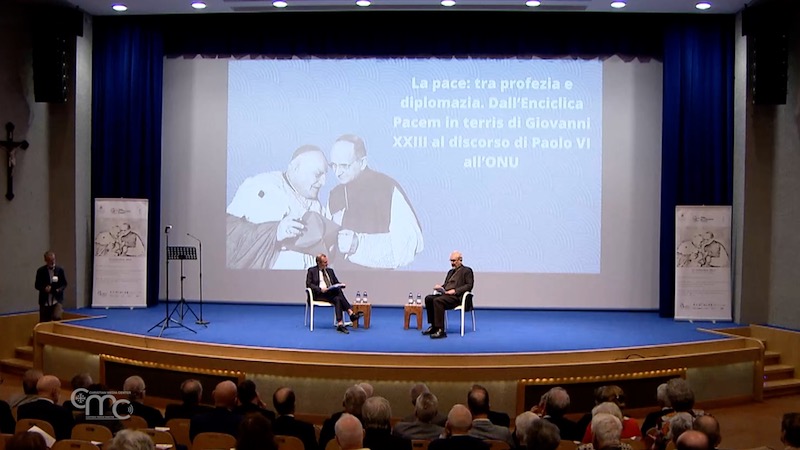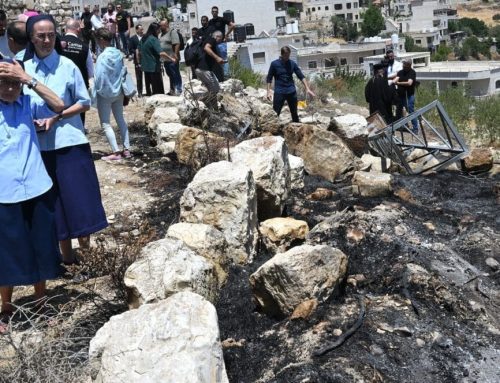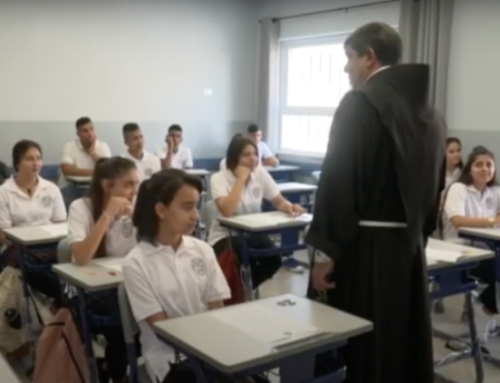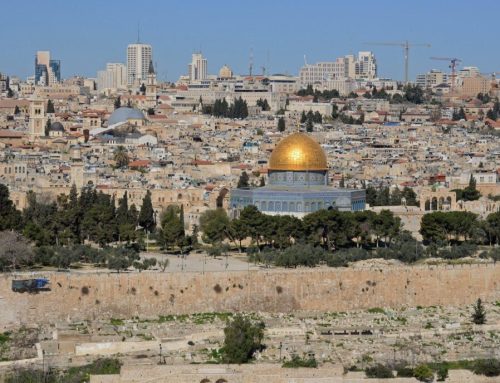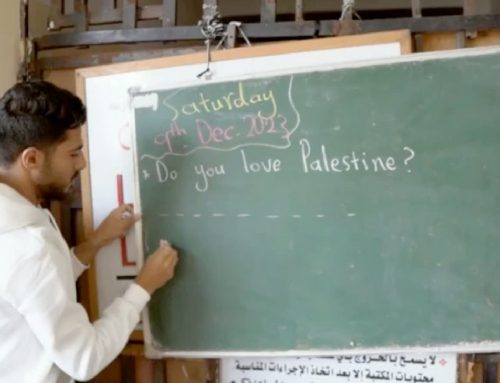A few days after his creation as Cardinal, H.B. Pierbattista Pizzaballa, Patriarch of Jerusalem of the Latins, returned to his homeland of Bergamo, Italy, to speak about peace.
‘Peace: between prophecy and diplomacy’. This was the title of the conference organised by the Pope John XXIII Foundation of Bergamo, the Paul VI Institute and the Opera per l’Educazione Cristiana of Brescia, which saw two voices, with two different experiences, that of the Patriarch and Staffan de Mistura, United Nations Ambassador and UN Envoy to war zones, discuss the integral vision of peace, interreligious dialogue and the future of the United Nations.
H B PIERBATTISTA PIZZABALLA
Patriarch of Jerusalem of the Latins
Pope John reminds us in his ‘Pacem in Terris’: peace needs integral development, an integral vision of life: therefore diplomacy is necessary, politics is necessary, but we have seen, especially in recent years, that the religious element is important and we cannot speak of peace if there is no egalitarian economic development, if there is no respect for people’s rights, if the role of women is not valued… peace today needs a global, integral approach.
ARMANDO SANTUS
President of the Pope John XXIII Foundation of Bergamo
The duty, as Bishop Francesco Beschi of Bergamo said in his introduction, is to overcome indifference towards peace. To do this, the lesson comes to us from the great Lombard pontiffs of the 20th century, Roncalli and Montini, who taught us that with the virtue of dialogue and patience it is possible to achieve extraordinary results.
A wide-ranging reflection on peace, during which the Patriarch could only cite Jerusalem as an example. “Peace is a continuous effort,” stressed Archbishop Pizzaballa, “it means working to recognise the existence of the other. We try to work on the territory, to create opportunities for encounters wherever possible. In our schools, with the few entrepreneurs present, to try to create opportunities for life and development: we speak of peace but it is also important that families live with dignity; we must ensure that this dignity is real, concrete. The most effective interreligious dialogue is the one that directly involves people and local religious authorities, who have direct relations with the territory: dialogue must be a place of encounter’.
H B PIERBATTISTA PIZZABALLA
Patriarch of Jerusalem of the Latins
Jerusalem reminds us of many things: first of all, that we are not masters of time. We want to find a solution immediately, whereas solutions need time, they must mature. It also teaches us that it is important to listen to the reasons of the other, and above all it reminds us that peace is not just written agreements, or understandings, peace comes from below, it needs the support and prayer of peoples.
By cmc-terrasanta.org

